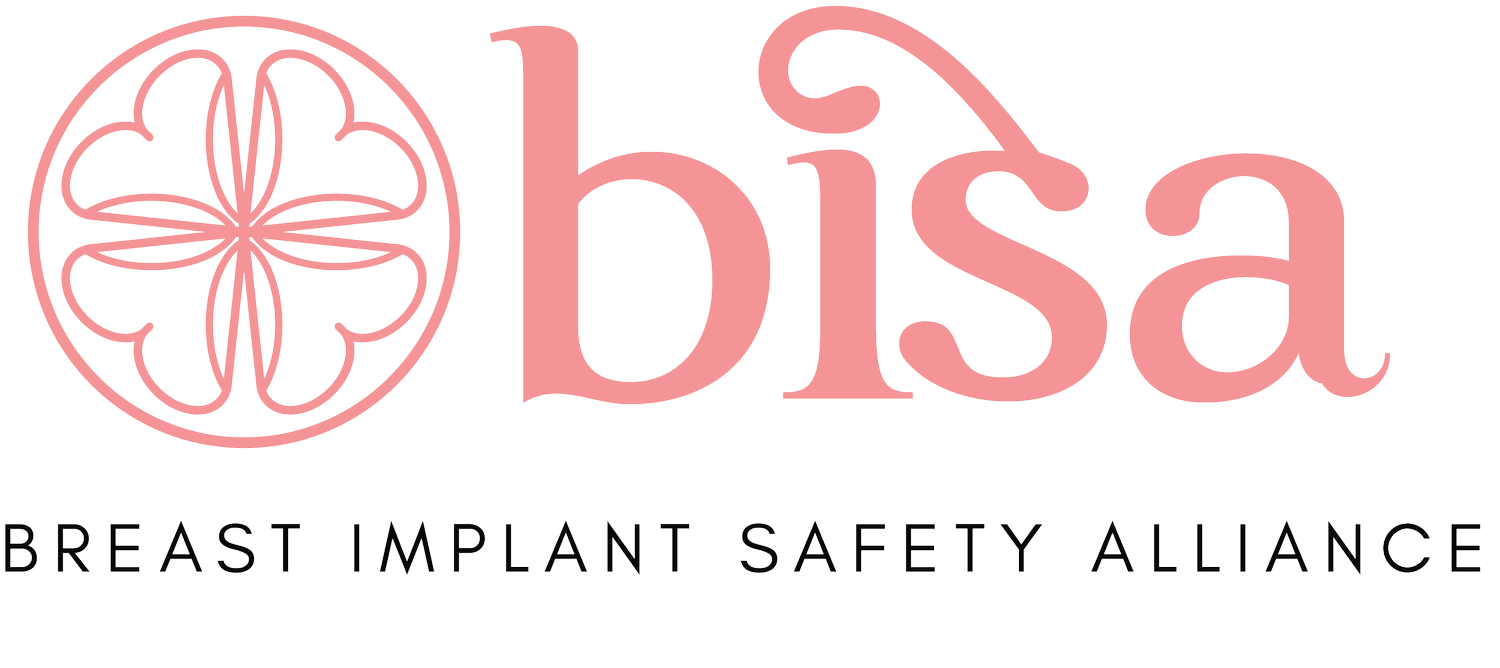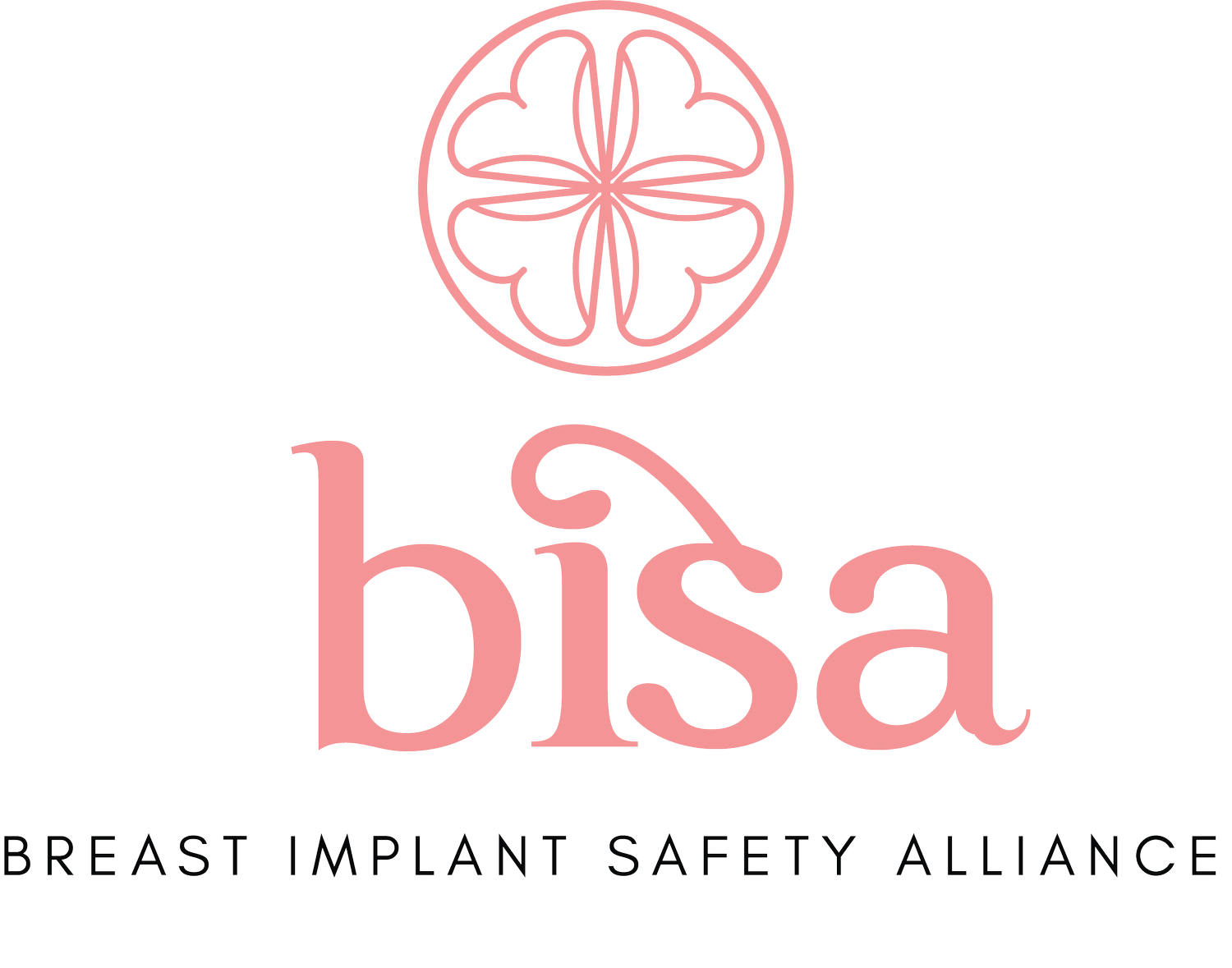5 Things to Know in 2023 about Breast Implants
The aesthetic benefit of breast implants may be obvious, but there are lesser known potential risks and reported complications the public should be aware of when considering or living with breast implants. Many people may not experience complications with breast implants, however the FDA, medical societies, researchers, and patient advocates continue to collaborate for increased safety and better communication. In 2023, here are 5 important things to know about breast implants.
1 - FDA Warning
Breast implants are a Class III medical device, the highest risk class for any medical device. In October of 2021, the FDA issued a boxed warning on all types of breast implants because they carry significant health safety risks, meaning the devices can potentially cause serious injury or death.
2 - Cancers Caused by Breast Implants
Various cancers caused by breast implants have been found in patients, regardless of type—including saline, silicone, textured, and smooth surfaces. The FDA reported in September 2022 that breast implant associated squamous cell carcinoma and other lymphomas found in the scar tissue (capsule) that forms around breast implants. These uncommon cancers can be serious and aggressive. Although reported as rare, the actual testing and reporting have also been rare—meaning the understanding is still emerging. The cause, and who will be impacted, is still unknown.
Some breast implants have been recalled because they can cause cancer of the immune system (BIA-ALCL). This cancer is currently associated with textured breast implants and expanders, regardless of the manufacturer, however only the Allergan Biocell implants were recalled, and many textured implants still remain on the market. Many patients have not been made aware of these recalls and not all doctors are alerting patients.
3 - Still Not Successfully Tracked
Some breast implant safety studies were never completed which impacts patient safety today. Breast implants have not been successfully tracked and some important data was not accessible to the public until recently. Problems with breast implants continue to be underreported because although highly encouraged, doctors are not required to report them, it may be time consuming and the general public is unaware they can self-report to the FDA. Some breast implant complications are still not well understood or studied. Screening and additional tests can be costly and may not be covered by insurance. The lack of standards of care can impact people physically, emotionally, and financially.
4 - Breast Implant Illness
All breast implants contain silicone. Saline-filled implants are also in a silicone shell. Chemicals in all breast implants can leak and bleed microscopically inside the body which may cause health problems even if the implant is not ruptured. Silicone has also been known to migrate to other parts of the body. Breast implants can cause systemic symptoms, commonly referred to as Breast Implant Illness (BII). The cause, who will be impacted, and how to treat these health issues are still unknown. Proper removal of the breast implants and scar tissue may contribute to symptom relief. Currently, BII has no diagnostic criteria and is not a recognized official diagnosis.
5 - Informed Consent Checklist
Breast implants are marketed to consumers by manufacturers and doctors who make a profit which can contribute to biased information, a lack of informed consent, and additional conflicts of interest. In 2021, the FDA recommended the use of an informed consent checklist but its use is not enforced. Patients may not be properly informed of all potential risks and complications. Before having implants places, be sure to read the FDA’s Guidance Document including the warning and a sample informed consent checklist so you are aware of any potential risks and complications.
A few recommendations…
BISA shares current information so you can make informed choices, find support, and learn to advocate for yourself.
Research as much as you can when considering breast implants.
Read the manufacturer safety information in detail before signing any informed consent documents.
Preview the sample patient decision informed consent checklist from the ASPS website.
Keep track of changes in your breast and overall health. Report changes to your doctor.
Start gathering copies of your medical records.
Take pictures of your implant identification information and store it in a safe place.
Report problems, side effects, and any new autoimmune or cancer diagnosis to the FDA Medwatch program.
Sign up for updates from Breast Implant Safety Alliance to stay informed.
Resources & References
FDA: Learn if a Medical Device Has Been Cleared by FDA for Marketing
ICIJ: FDA Kept Hundreds of Thousands of Breast Implant Incidents Hidden From Public
What to Know About Breast Implants
Medical Device Reports for Systemic Symptoms in Women with Breast Implants
DrugWatch: Allergan Breast Implant Recalls
MedWatch: The FDA Safety Information and Adverse Event Reporting Program



